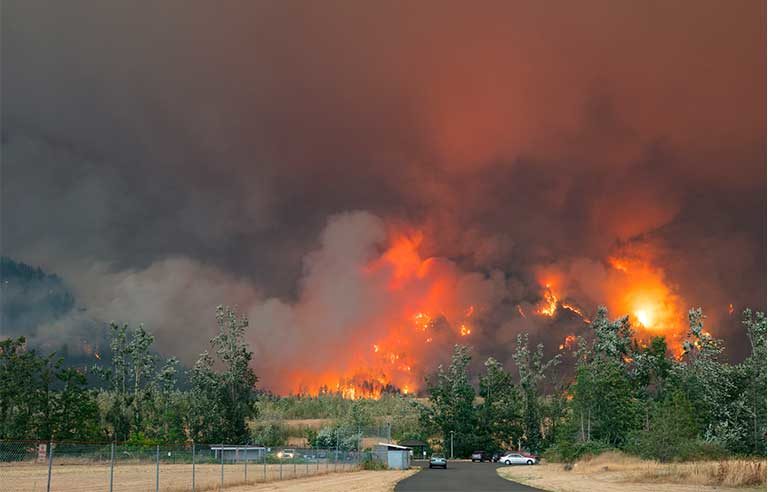Oregon OSHA adopts permanent rules on extreme heat, wildfire smoke

Salem, OR — Oregon OSHA has adopted permanent rules intended to safeguard workers from extreme heat and wildfire smoke, calling them “the most protective of their kind in the United States.”
The heat rules – set to go into effect June 15 – address worker access to shade and cool water; preventive cooldown breaks; and prevention plans, information and training. The wildfire smoke rules are scheduled to go into effect July 1 and highlight training, communication, and a variety of exposure assessments and controls.
The rules are part of Gov. Kate Brown’s (D) efforts to “mitigate the effects of climate change,” which began with a March 2020 Executive Order. In a May 10 press release, Brown said the rules are “a national model” for protecting all workers, including farmworkers who regularly face high-heat conditions and are exposed to wildfire smoke.
The rules were proposed in February and stem from temporary emergency requirements adopted by Oregon OSHA last summer after several months of input from community members and stakeholders.
“We know the threats posed by high heat and wildfire smoke are not going away,” Andrew Stolfi, director of the Oregon Department of Consumer and Business Services, which oversees Oregon OSHA, said in the release. “These rules reflect that reality, and they bolster our ability to prepare for those hazards in the workplace.”
The agency, which operates as a State Plan, says it will continue to offer free training and education resources geared toward helping employers comply with the rules.
Post a comment to this article
Safety+Health welcomes comments that promote respectful dialogue. Please stay on topic. Comments that contain personal attacks, profanity or abusive language – or those aggressively promoting products or services – will be removed. We reserve the right to determine which comments violate our comment policy. (Anonymous comments are welcome; merely skip the “name” field in the comment box. An email address is required but will not be included with your comment.)

